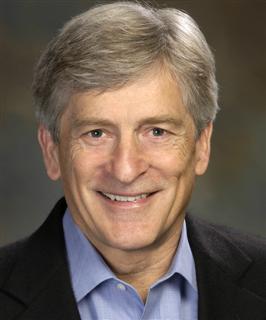Karl Meyer Award 2009 RecipientThe President of the Society is honoured to announce that the 2009 Karl Meyer awardee is:
Dr. Paulson's interests in glycobiology encompass a wide range of biologic systems, including host-pathogen interactions and immune regulation. In the early 80s, Dr. Paulson found that human influenza viruses and their avian progenitors recognized different sialoside linkages, resulting from specific mutations in the receptor-binding pocket of the hemagglutinin, thus identifying species-specific difference in cellular glycosylation as a crucial factor in the adaptation of avian influenza virus to human hosts. This difference is now widely accepted as a barrier for avian influenza to adapt to humans, and has been critical in understanding the recent emergence of different influenza viruses. Subsequently, Dr. Paulson's work in identifying the glycan ligands for the leukocyte adhesion molecules, E- and P-selectin, led to an explosion of work in this field, and was essential for elucidation of the mechanism of leukocyte trafficking and appreciation for the selectins as therapeutic targets. As part of these studies, he contributed to the identification of a novel human leukocyte adhesion deficiency (LAD II). Dr. Paulson has also made critical contributions to our understanding of how glycans regulate immune cell function, specifically identifying the role of CD22 binding to cell surface glycans as a mechanism to restrain B cell signaling. In addition to his important and wide-ranging scientific contributions, Dr. Paulson's leadership has had a major impact on the glycobiology community. He served as President of the Society for Glycobiology in 2003, serves on numerous scientific advisory boards and editorial boards, and for the last 8 years has led the Consortium for Functional Glycomics (CFG), a group of nearly 480 investigators worldwide. Dr. Paulson has mentored numerous graduate students and post-doctoral fellows who are continuing to contribute to glycobiology. The pioneering work of Dr. James Paulson over the last 30 years ago is recognized by his selection as the recipient of the 2009 Karl Meyer award from the Society for Glycobiology. |


 Dr. James C. Paulson
Dr. James C. Paulson